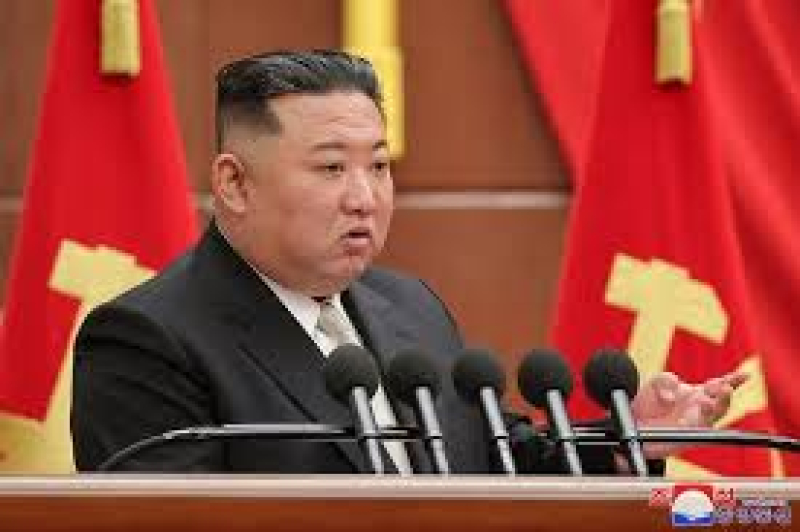- Project to transform N’ganj into a climate-resilient green city |
- Sustainable, rights-based solutions to Rohingya crisis urged |
- Inqilab Monch Seeks Home Adviser’s Exit |
- UN Calls for Calm in Bangladesh After Protest Leader’s Killing |
- DMP issues 7 traffic directives for Osman Hadi’s Janaza |
North Korea's Kim closes agencies aimed at reunification

North Korean state media reported Tuesday that Kim Jong Un has scrapped key government agencies tasked with managing relations with South Korea.
Two Koreas now locked in 'acute confrontation'
North Korea's decision to abolish the organizations dealing with cooperation and reunification with the South was made by the North's rubber-stamp parliament on Monday, the Korean Central News Agency (KCNA) said.
"The Committee for the Peaceful Reunification of the Country, the National Economic Cooperation Bureau and the (Mount Kumgang) International Tourism Administration, tools which existed for (North-South) dialogue, negotiations and cooperation, are abolished," the Supreme People's Assembly said in a statement, adding that the government in Pyongyang will take "practical measures" to implement the decision.
The assembly said the two Koreas were now locked in an "acute confrontation" and that it would be a serious mistake for the North to regard the South as a partner in diplomacy.
The move is a part of a flurry of recent measures, including live-fire artillery drills and missile launches, that have heightened tensions in the region, reports DW.
Kim calls for South to be deemed 'most hostile state'
Kim also said that North Korea would not recognize the two countries' de facto maritime border — the Northern Limit Line — and called for constitutional changes allowing for the North to "occupy" the South in war, KCNA reported.
In an address to the Supreme People's Assembly, Kim called for drawing up new legal measures to define South Korea as "the most hostile state," KCNA said.
"In my opinion, we can specify in our constitution the issue of completely occupying, subjugating and reclaiming the ROK (Republic of Korea) and annex it as a part of the territory of our Republic in case a war breaks out on the Korean peninsula," Kim said.
"If the Republic of Korea violates even 0.001 mm of our territorial land, air and waters, it will be considered a war provocation," he added.
How did South Korea respond?
Talking to his cabinet, South Korean President Yoon Suk Yeol said that if the nuclear-armed North carries out a provocation, Seoul will hit back with a response "multiple times stronger."
"If North Korea carries out a provocation, we will retaliate multiple times stronger," he said in a televised meeting, underpinning the South Korean military's "overwhelming response capabilities."

